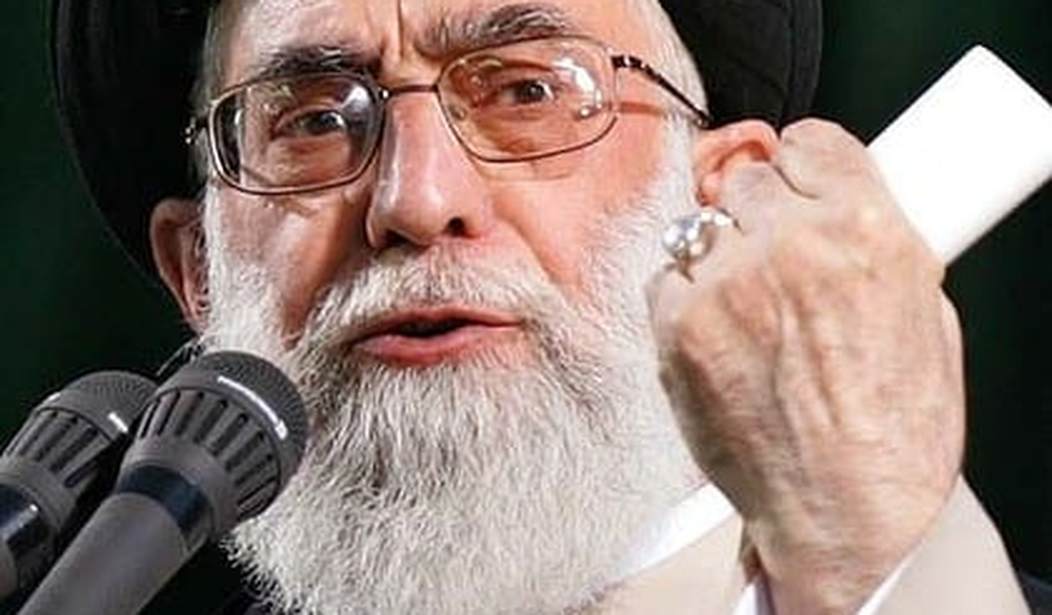WASHINGTON – A bipartisan group of senators remains unconvinced about the effectiveness of current sanctions against Iran, following a set of new restrictions unveiled by the Obama administration last week.
The Treasury Department announced Tuesday new sanctions on Iran, targeting a network of firms that U.S. officials said were front companies that earned billions of dollars in profits for Iran’s top leaders. This marks the fourth such measure in a week.
The Treasury Department identified 37 companies, including enterprises in South Africa, Croatia, Germany, and the United Arab Emirates, that it said operated ostensibly as private businesses directed by Iranian leaders to help evade existing U.S. and European sanctions.
These sanctions follow an executive order signed by President Obama on Monday authorizing further sanctions on foreign banks and financial institutions that make transactions in Iran’s currency, the rial, outside the country. The new rules, which will be effective July 1, also penalize the sale of goods and services to Iran’s auto industry, an important sector of the country’s economy.
“The steps taken today are part of President Obama’s commitment to prevent Iran from acquiring a nuclear weapon, by raising the cost of Iran’s defiance of the international community,” White House spokesman Jay Carney said in a statement.
The Obama administration has introduced the series of new measures to step up the pressure on Iran over its nuclear program, which Iran insists is for peaceful purposes but Washington and other Western powers suspect is aimed at making weapons. The latest executive order is the ninth Obama has signed on Iran since the start of his presidency and the sixth in the last two years.
But the Obama administration’s efforts were not enough to convince lawmakers at a Senate Banking Committee hearing on Tuesday about the impact of sanctions on Iran’s nuclear program.
Banking committee members Sens. Bob Corker (R-Tenn.), Robert Menendez (D-N.J.), Mike Crapo (R-Idaho), and Joe Manchin (D-W.Va.) all expressed concern Tuesday that sanctions have yet to have an impact on Iran’s behavior.
“I know it’s been noted…that we’ve been trying to hurt Iran’s economy, but it hasn’t stopped them. And it looks they’re determined to move on which is something that we can’t tolerate in any way, shape or form,” Manchin said.
David Cohen, Treasury’s top terrorism and financial intelligence official, said that while the U.S. has not achieved its goal of convincing Tehran to the change the course of its nuclear program, the financial sanctions are having some impact. For instance, Cohen said, Iran requested sanctions relief at a negotiating session in Kazakhstan in April.
“As we have repeatedly made clear, Tehran faces a choice: it can address the call of the international community to give up its nuclear ambitions and be permitted to reintegrate itself diplomatically, economically and financially into the world community, or it can continue down its current path and face ever-growing pressure and isolation,” Cohen said.
Wendy Sherman, the undersecretary of State for Political Affairs, said that of the more than 20 countries that imported oil when the sanctions went into full effect, only a handful continue to do so today.
“The oil sanctions, which we have been implementing for 18 months, have resulted in Iran exporting over 1 million fewer barrels of crude oil each day than it did in 2011, costing Iran between $3 billion and $5 billion per month,” said Sherman.
The Treasury Department estimated that in 2012 Iran’s gross domestic product fell by some 5 to 8 percent – the largest drop since 1988, the final year of the Iran-Iraq war. Cohen said the GDP drop resulted in the largest budget deficit in 14 years, amounting to approximately 3 percent of GDP.
“We believe Iran’s GDP will continue to shrink in 2013 in the face of reduced government and consumer spending and declining oil exports, as well as the ramping up of additional sanctions,” Cohen said.
Senate Banking Committee Chairman Tim Johnson (D-S.D.) noted the impact the sanctions have had on Iran’s oil sales and its government revenues, but cautioned that Iran’s unwillingness to comprise could persist even in the face of new restrictions.
“Despite this progress the core strategic objective of our sanctions has not yet been realized: Iran’s leaders still refuse to abandon their illicit nuclear program and verifiably limit their nuclear activities to peaceful purposes,” said Johnson.
Johnson said that Iran’s supreme leader, Ayatollah Ali Khamenei, has remained indifferent to the suffering of his own people and “to their demands for political, economic and social reform.”
“It seems clear that his decision to continue Iran’s illicit nuclear activities will not be reversed without intensified economic pressure, coupled with heightened political and diplomatic efforts,” Johnson said.
Menendez asked witnesses what more needed to be done to “change the calculus” of Iran’s leaders on its nuclear program, while Sen. Chuck Schumer (D-N.Y.) criticized the Treasury Department’s failure to sanction non-Iranian banks for conducting transactions with sanctioned banks, noting that the department has sanctioned just two non-Iran foreign banks in the past.
“I believe the administration has to start sanctioning foreign banks that continue to conduct significant financial transactions or provide significant financial services with the sanctioned Iranian banks, the Revolutionary Guard or the Central Bank of Iran,” Schumer said. “Otherwise, there’s no incentive to refrain from doing business with these entities.”
Sen. Elizabeth Warren (D-Mass.) asked whether the current sanctions could be reversed in the case of reaching a negotiated agreement, referencing a report from the International Crisis Group, a research group funded by George Soros, which concluded that international sanctions have become so entrenched in Iran’s political and economic systems that they cannot be easily lifted.
Sherman said that all of the sanctions could be ultimately removed by either executive action or legislation, but there is not a way within the existing legislation to do so without having to pass new legislation.
Sanctions imposed by the United States and European Union cut Iran’s oil exports in half last year, resulting in high inflation and a lower value for the rial. But there is scant evidence the sanctions have slowed the nuclear program. According to the International Atomic Energy Agency’s latest quarterly report, Iran has continued to expand its nuclear activities, including the accelerated installation of advanced uranium-enrichment equipment at its central Natanz plant.









Join the conversation as a VIP Member